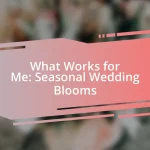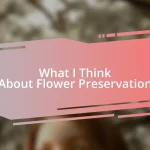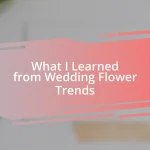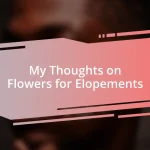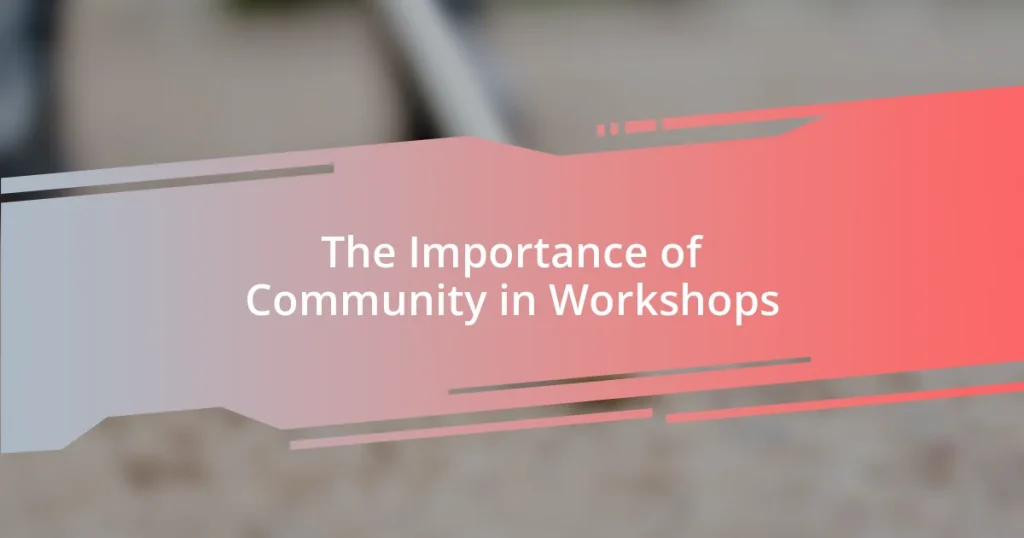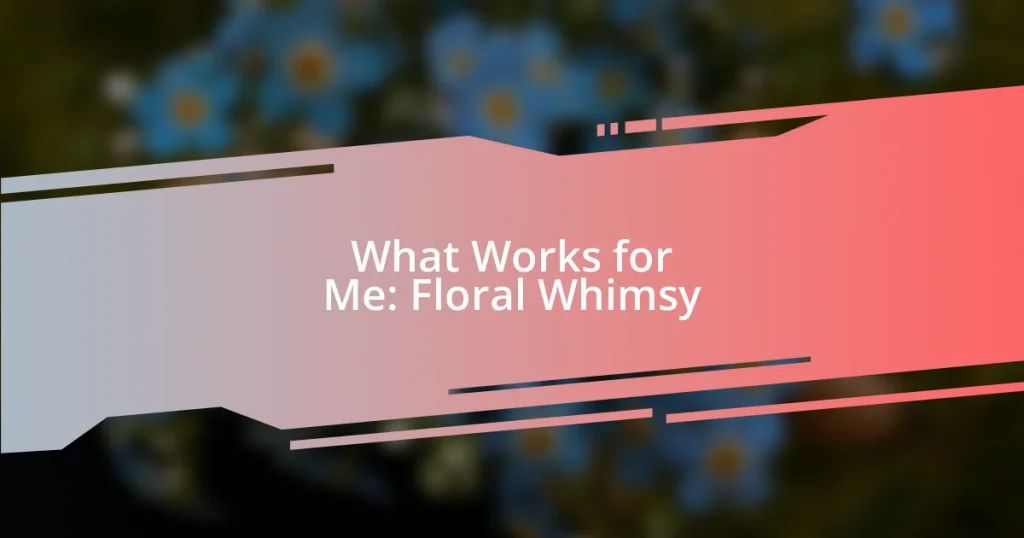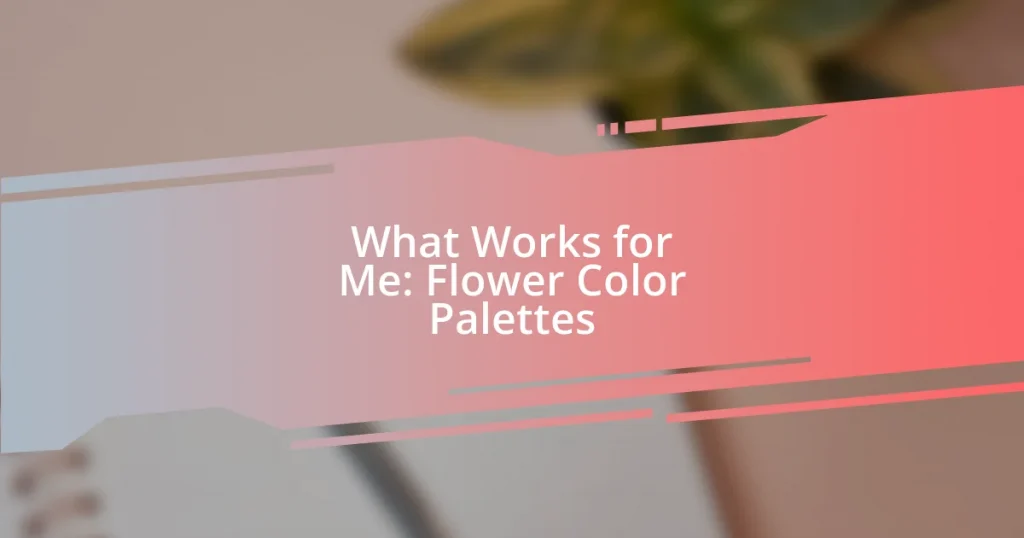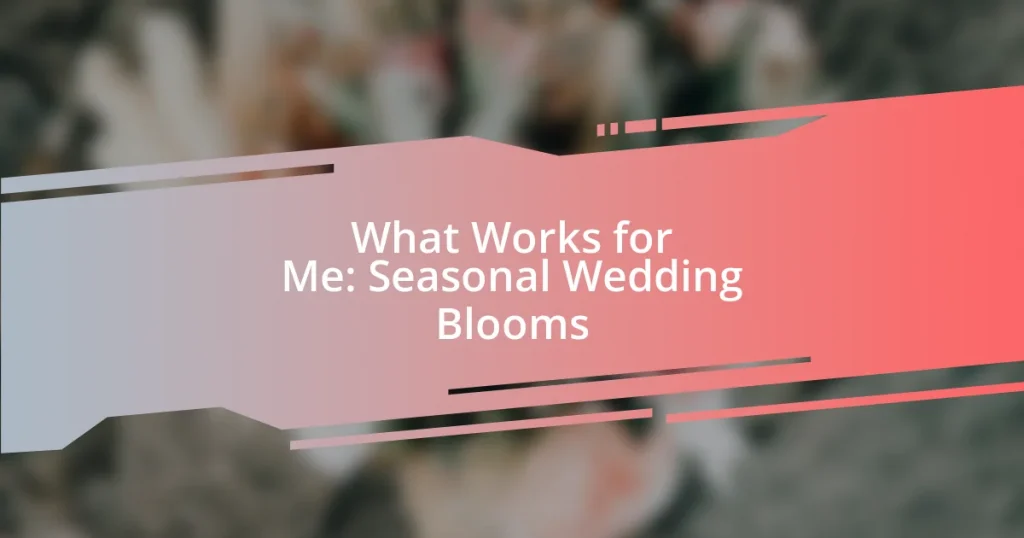Key takeaways:
- Community in workshops fosters a safe space for sharing, leading to increased engagement, creativity, and emotional support among participants.
- Networking opportunities arise through community engagement, allowing for collaboration, the formation of lasting friendships, and mutual support beyond the workshop environment.
- Strategies for sustaining community post-workshop include regular follow-ups, online dialogue platforms, and organizing occasional meet-ups to reinforce connections and encourage ongoing interaction.
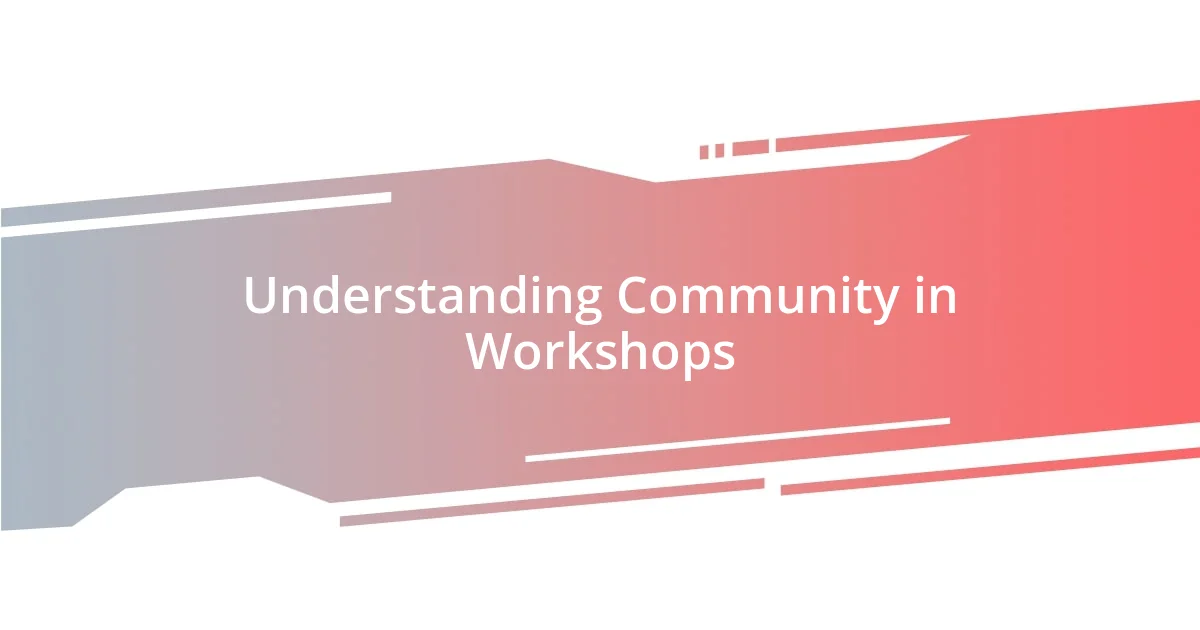
Understanding Community in Workshops
Community in workshops is more than just a group of people coming together; it’s about creating a safe space where individuals can share their ideas, fears, and aspirations. I often recall a workshop I attended that fostered such an environment. The moment someone tentatively shared a personal story, I felt a ripple of encouragement sweep through the room. It reminded me that vulnerability can spark connection, and isn’t that what we all seek?
When participants feel like they belong, they’re more likely to engage fully in the experience. For instance, I’ve seen firsthand how collaborative discussions can lead to breakthroughs that wouldn’t happen in isolation. Have you ever felt energized after bouncing ideas off others? That’s the power of community—it nurtures creativity and fuels innovation.
In any workshop, building this sense of community requires intentional effort. I believe it’s about ensuring that every voice matters, welcoming diverse perspectives, and cultivating a culture of respect. Remember that time when you felt truly heard? That’s the feeling we should strive for in every workshop setting. Creating this atmosphere not only enhances learning but also fosters lasting connections among attendees.
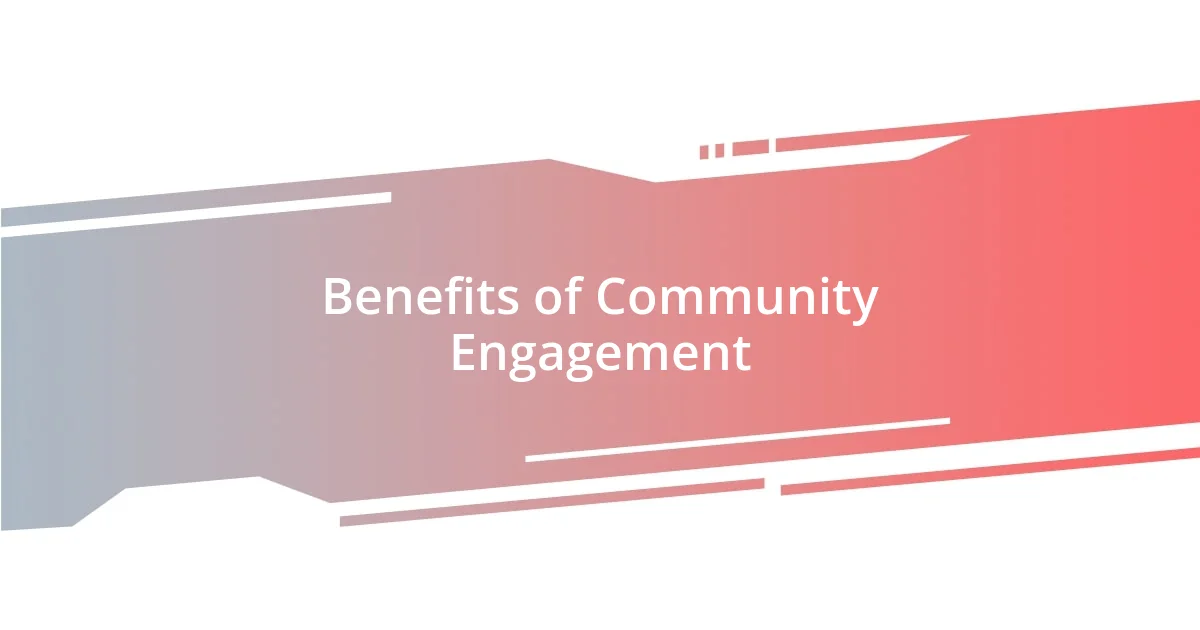
Benefits of Community Engagement
Engaging with a community in workshops can lead to profound learning experiences. I once participated in a workshop where attendees were encouraged to share their unique perspectives. Hearing someone’s story about overcoming challenges inspired me to reflect on my own journey. It created a sense of unity that was palpable—we weren’t just participants; we became a collective force supporting each other’s growth.
Another significant benefit of community engagement is the networking opportunities it creates. I still remember chatting over lunch at a workshop with someone who later became a collaborator on a project. These connections might not occur in a more isolated environment, underscoring the value of building relationships in community settings. Have you ever walked away from a workshop feeling like you gained not just knowledge but a few new friends as well?
The emotional support that stems from a strong sense of community cannot be understated. In one of my recent workshops, a participant shared their struggles with confidence. The ensuing encouragement from others was incredible. It reinforced my belief that when we lift each other up, we create a safety net that fosters personal and professional growth. Isn’t that the essence of true community engagement?
| Benefit | Description |
|---|---|
| Enhanced Learning | Sharing diverse experiences deepens understanding and encourages reflection. |
| Networking Opportunities | Building relationships can lead to collaboration and future partnerships. |
| Emotional Support | A strong community provides encouragement and motivation, fostering personal growth. |
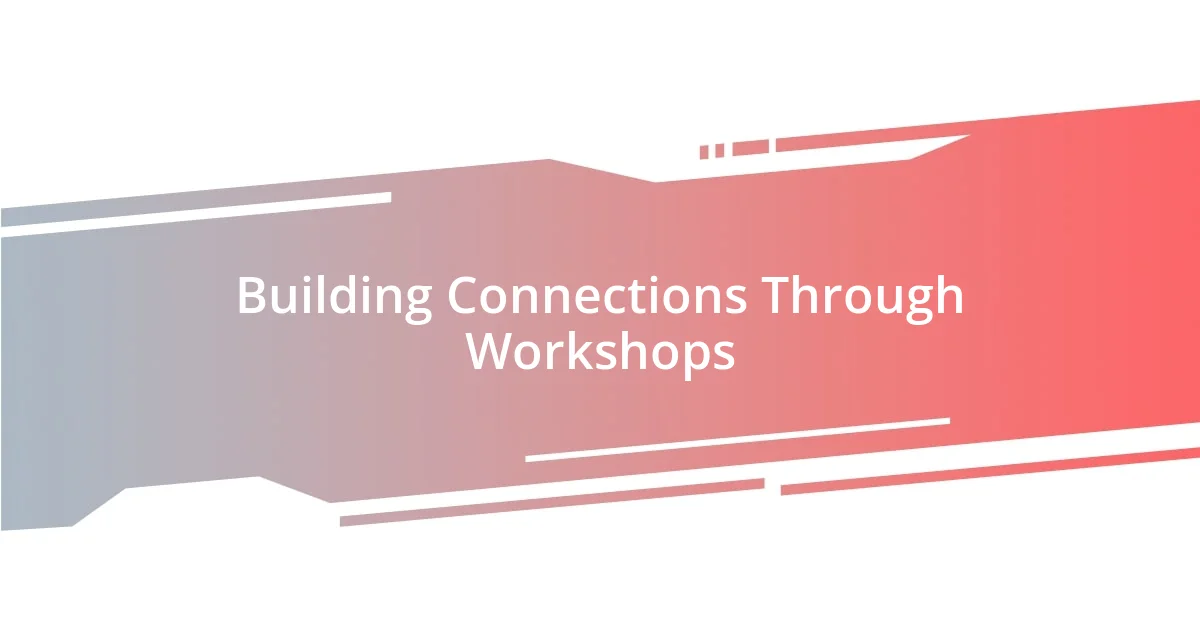
Building Connections Through Workshops
Building connections through workshops goes beyond mere participation; it’s about forging relationships that can last well after the event. I vividly remember a gathering where I was struck by the warmth of the atmosphere. As participants exchanged their ideas, laughter filled the room. It wasn’t just about learning new skills; it was about creating a network of allies who were rooting for each other’s success. I truly believe that these connections can be transformative, providing a support system that enriches both personal and professional lives.
- Trust-Building: Sharing experiences cultivates trust, making it easier for participants to collaborate and communicate openly.
- Shared Resources: When connections are made, sharing resources, knowledge, and skills becomes natural.
- Lifelong Friendships: Genuine interactions can lead to friendships that extend beyond the workshop experience.
- Collaborative Opportunities: Engaging with others often leads to new ideas and potential partnerships that can be pursued after the event.
In this journey of connection, I’ve often found that the simple act of introducing myself to someone new can lead to unexpected conversations. I recall a time I approached a fellow attendee who seemed shy. A genuine exchange about our aspirations blossomed into a discussion about a project we both felt passionate about. The spark of that moment transformed our initial discomfort into a willingness to exchange ideas and support each other’s efforts. Isn’t it amazing how workshops can open doors to applications and possibilities you never thought might arise?
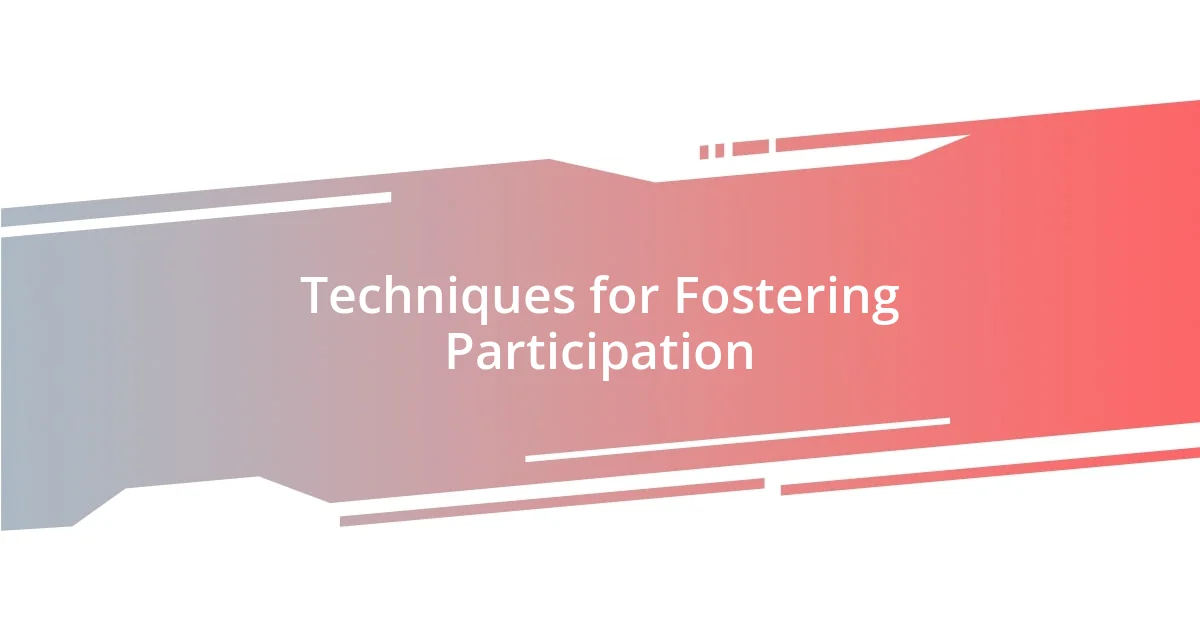
Techniques for Fostering Participation
Fostering participation in workshops often begins with creating an open atmosphere. I once attended a session where the facilitator used icebreakers to get everyone talking. It instilled a sense of comfort, making it easier to share thoughts later on. Have you ever felt that relaxation wash over you when you realize you’re in a safe space? It’s a powerful experience that sets the stage for deeper engagement.
Another effective technique I’ve found is encouraging group discussions. I recall witnessing a workshop where participants were divided into small groups to tackle a common challenge. The energy in the room skyrocketed as ideas bounced back and forth. It felt like a brainstorming session on steroids! By breaking into smaller units, we were able to explore different angles together, fostering everyone’s voice in the process. Isn’t it fascinating how sharing perspectives can ignite inspiration?
Incorporating creative activities can also significantly enhance participation. In one workshop I attended, we were asked to create visual maps of our goals on large sheets of paper. This hands-on approach not only engaged our minds but also our emotions. I distinctly remember the thrill of connecting my aspirations to vivid colors and drawings. It made our dreams tangible and sparked meaningful conversations about our journeys. How often do we miss out on these connections because we stick to traditional formats? From my perspective, innovation in engagement strategies can truly transform the workshop experience.
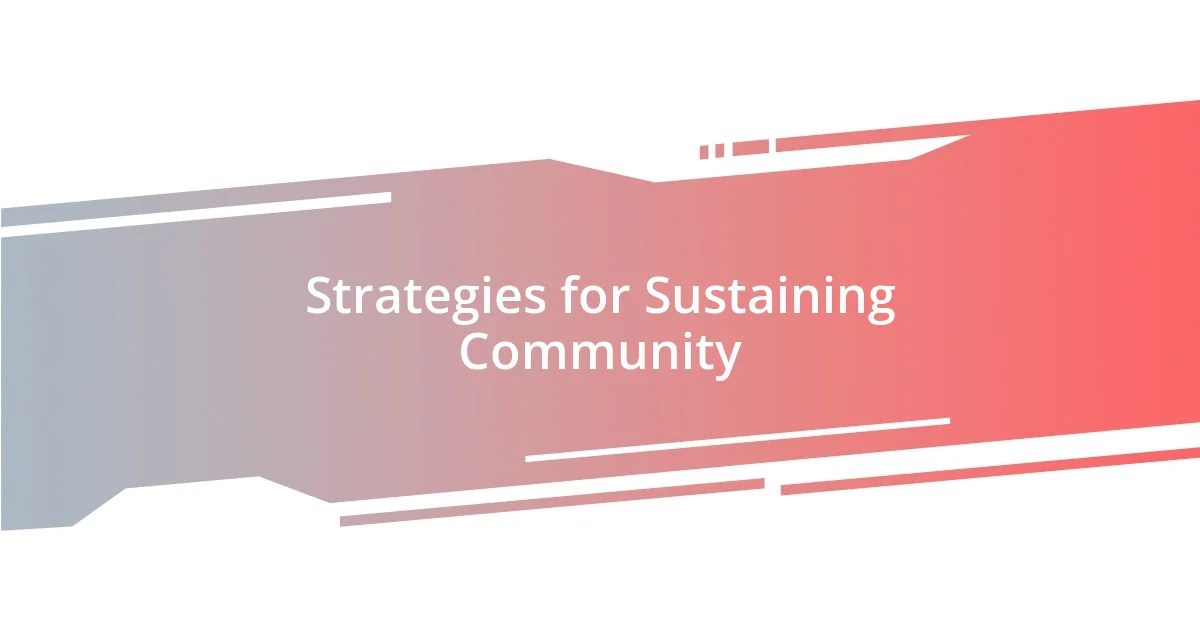
Strategies for Sustaining Community
One effective strategy for sustaining community is through regular follow-ups. I remember after a particularly impactful workshop, the facilitator sent out a friendly email inviting us to share our progress on projects discussed. This simple gesture created a bridge; it made me feel valued and part of something ongoing. Isn’t it incredible how a few thoughtful words can maintain connections and keep discussions alive?
Creating online spaces for continued dialogue is another excellent approach. In a workshop I attended, a private Facebook group was set up for participants to share resources, successes, and challenges even after the event concluded. I still recall the excitement I felt seeing notifications pop up, sparking conversations and inspiring me to take action on my own ideas. How often do we have the tools to stay connected but fail to utilize them fully? This ongoing interaction turns fleeting connections into lasting relationships.
Lastly, organizing occasional meet-ups can rejuvenate that initial community spirit. I vividly recall attending a casual coffee gathering with a few workshop peers months later. The conversation flowed easily as we caught up, reminiscing about the event and sharing what we had accomplished since. Those moments reminded me of why I had connected with them in the first place. Have you ever felt that special bond reignite simply by engaging over shared experiences? Investing in these relationships adds invaluable depth to our networks.
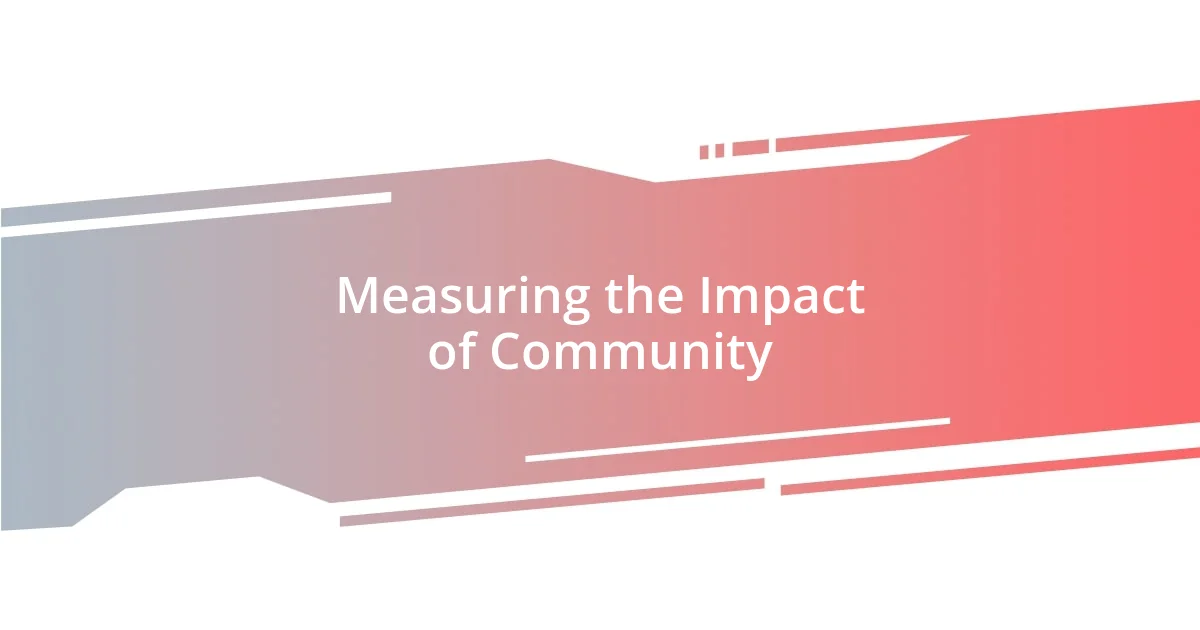
Measuring the Impact of Community
Measuring the impact of community in workshops often involves looking at the relationships built and the outcomes achieved. I remember a workshop where, months later, we conducted a survey to assess how much we had leveraged our newfound connections. It was eye-opening to see how many participants collaborated on projects that originated in those initial discussions. Isn’t it amazing how those relationships can drive real-world results, connecting us beyond just a single event?
Another crucial aspect is qualitative feedback, which I believe provides deeper insights than numbers can offer. After one particularly engaging workshop, I gathered informal testimonials from participants about their experiences. They shared stories of newfound confidence and creativity sparked by collaborative discussions. I couldn’t help but feel a rush of joy hearing how those moments made a genuine difference in their lives. Does that kind of impact resonate with you?
Finally, I find the long-term changes in participants’ mindsets to be an essential measure of community impact. In a recent workshop, I noticed participants becoming more proactive, reaching out to each other for support on various projects. This shift was evident when I saw someone who once hesitated to share ideas passionately presenting a group initiative months later. Witnessing that transformation made me realize how a strong community can empower individuals. Have you ever felt that urge to step up and be part of something bigger? These experiences highlight the profound influence that community can have in a workshop setting.
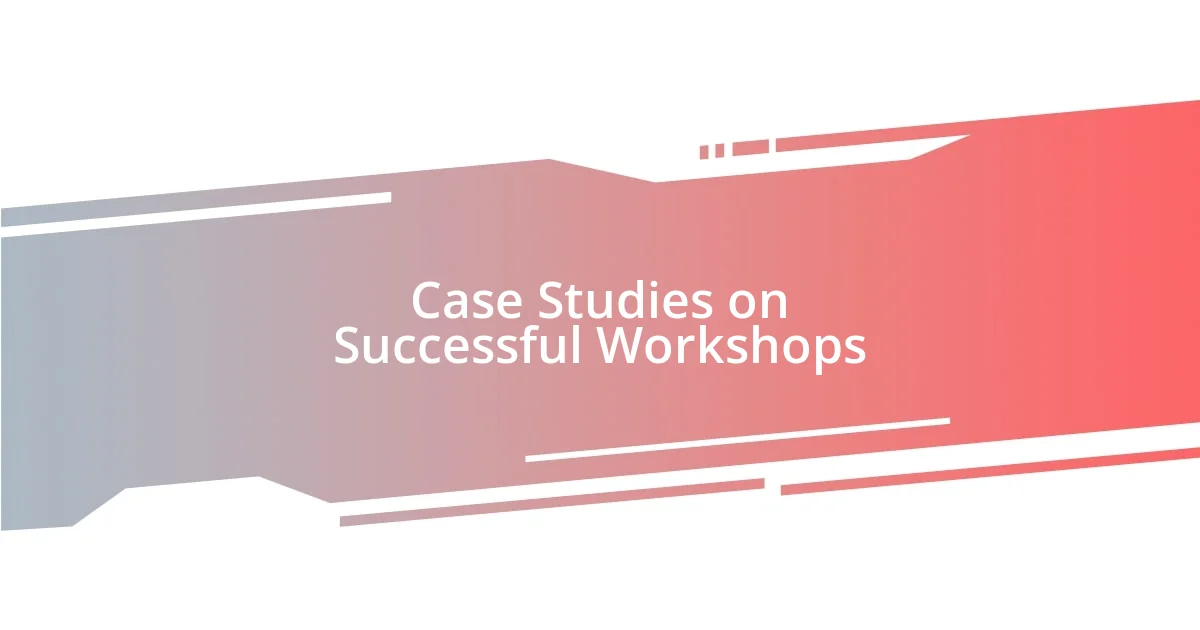
Case Studies on Successful Workshops
One inspiring case study I encountered was a workshop designed for creative entrepreneurs. The facilitator focused not just on skills but also on building a supportive environment. To my surprise, a participant I later met shared how the friendships formed during that event led to a collaborative project that launched a successful local art fair. This left me pondering — how often do we realize that the connections we make can become catalysts for larger endeavors?
In another instance, I attended a tech workshop where the emphasis was on hands-on learning and peer mentorship. I vividly recall a moment when a participant bravely shared her coding challenge. Immediately, others rallied to assist, sparking a lively exchange of ideas. That sense of camaraderie was palpable. Can you remember a time when teamwork transformed a daunting task into an exciting shared experience?
Lastly, I recently read about a community garden workshop that created not just beautiful landscapes but also lasting friendships. Attendees were encouraged to bring their personal stories and backgrounds into discussions about planting techniques. I found it heartwarming to hear how an exchange about heirloom seeds not only cultivated plants but fostered genuine connections. Isn’t it fascinating how our shared passions can nurture both nature and community?


